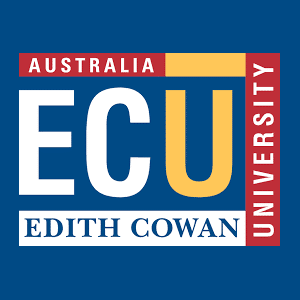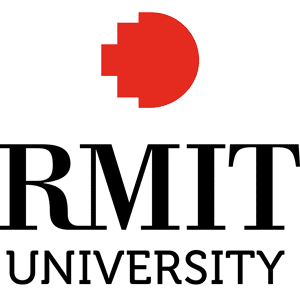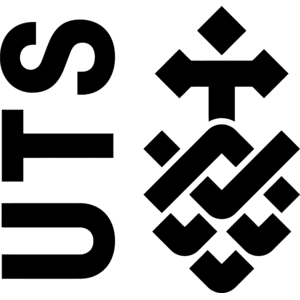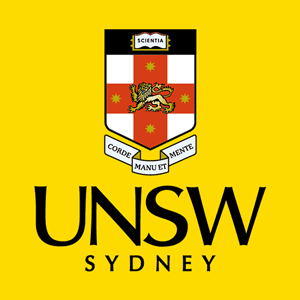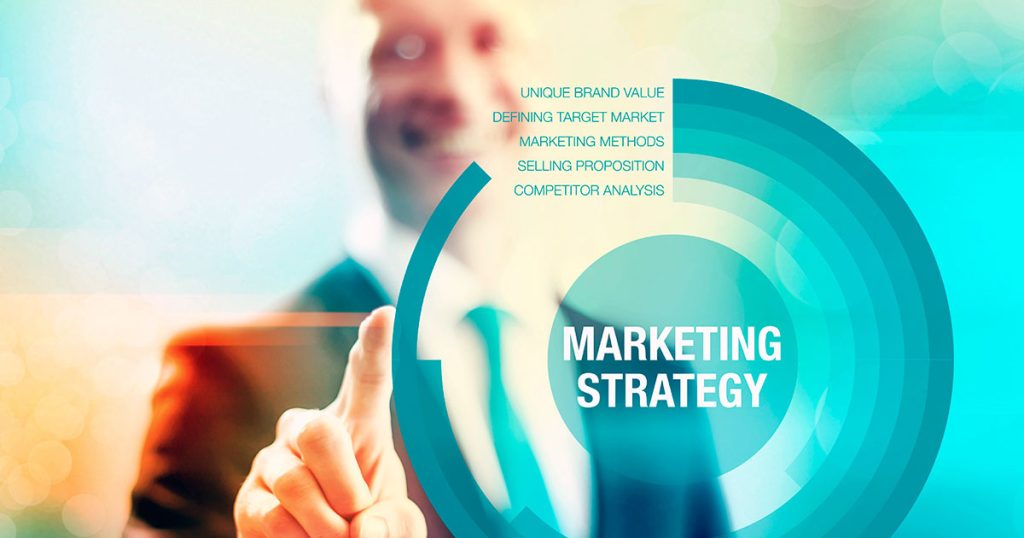Create job opportunities with Australia's best marketing and digital marketing degrees.
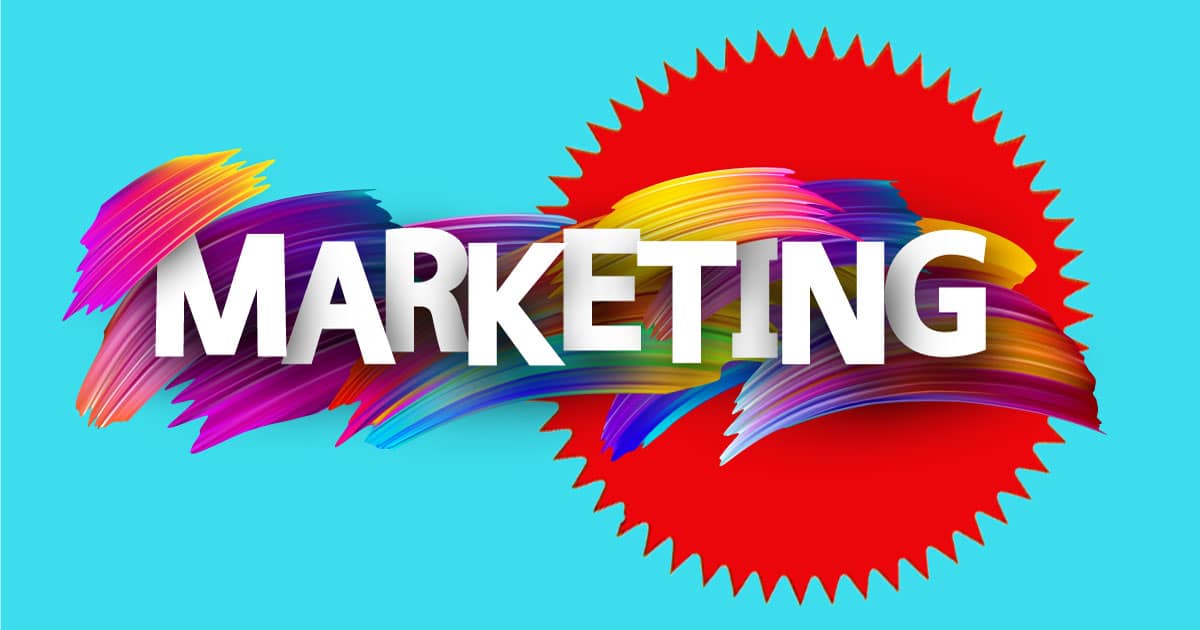
You should consider a marketing degree if you're solid with numbers and a good communicator. A grasp of psychology helps too. Marketing pros help businesses grow by reaching customers and convincing them to buy products.
A Bachelor of Business (Marketing) is normally the degree to go for if you haven't been to university before. If you have a degree already (any discipline), consider an online Master of Marketing.
Further study options also exist. A graduate certificate is a way to gain general or specialist skills and perhaps get started on a masters. Digital marketing degrees are available. And you can study marketing in the field of data analytics.
A Bachelor of Business (Marketing) or Bachelor of Marketing is a general business degree. Along with marketing, you study subjects such as accounting, economics, finance and management.
The degree prepares you for almost any business career and advantages you in applying for numerous jobs. Popular subjects in a bachelor program are business analytics, campaign strategy, consumer behaviour and research, and digital platforms.
ECU - Bachelor of Marketing, Advertising and Public Relations
The online Bachelor of Marketing, Advertising and Public Relations at Edith Cowan University merges related disciplines so graduates can build the optimal skill set. You'll explore consumer behaviour, social media marketing, strategic branding, and more. Work placements and industry projects ensure that graduates are well-prepared for the job market.
If you have a degree (any discipline) or significant job experience, an online Graduate Certificate in Marketing could be a good option. The course is quite short, often consisting of four (4) subjects from a 12-subject master's program.
You can do the graduate certificate to test if marketing is for you and perhaps go on to get a masters. Alternatively, you can use the course to upskill, gaining general knowledge or digital marketing skills.
RMIT - Graduate Certificate in Marketing
The RMIT Online Graduate Certificate in Marketing is an 8-month, part-time program. It combines four courses: marketing management, consumer behaviour, communication strategies, and research. Designed for both aspiring and current marketing managers, it offers practical skills for immediate impact. The course serves as a pathway to the Master of Marketing.
Some Graduate Certificate in Digital Marketing courses are designed for people with a non-marketing background. They're popular among professionals from areas such as journalism, sales management, and business management.
An introductory course may cover subjects such as consumer insights and customer orientation, before moving on to digital methods. Benefits: A beginner course helps you understand the potential of the field and gain insights into how to work with agencies.
UTS - Graduate Certificate in Marketing and Digital Strategy
This UTS Online course builds foundational digital marketing skills over eight months, part-time. It includes four subjects, such as Customer Centric Marketing and Consumer Insights, with elective options like Data-Driven Marketing. It's a stepping stone to the Master of Digital Marketing. Entry is open to those with a degree or relevant work experience.
For those who just want to learn about online methods, specialist Graduate Certificate in Digital Marketing courses are available.
To gain entry, you'll generally need to have a suitable marketing background in the form of bachelor studies and/or professional experience. The course offers good topical exposure, building essential skills that can be easily adapted and developed for on-the-job application.
UTS - Graduate Certificate in Digital Marketing
The UTS Online Graduate Certificate in Digital Marketing offers essential knowledge for strategic leadership in this field. This 8-month, part-time, online course includes four subjects: Digital Marketing Today, Digital Customer Behaviour, Data-Driven Marketing, and Branding in the Digital World. Admission requires a relevant bachelor's degree or professional experience.
The Masters in Marketing is a 12-subject degree for people serious about working in the field. Classes include experienced marketers and those looking to launch their career.
The degrees are comprehensive. Expect some foundation, principles-based subjects. As well, you'll do advanced studies in selected areas. Accelerated online degrees require just 2 years of part-time study.
RMIT - Master of Marketing
RMIT Online's Master of Marketing develops skills for future leadership, blending foundational principles with digital innovation. It's designed for current and future marketing managers. The two-year, part-time program offers five core and seven elective courses. It covers topics such as brand strategy, product innovation, analytics, and services promotion.
Digital marketing is a large and growing field that calls for advanced, specialist skills. Hence, the popularity of dedicated masters degrees.
With a Masters in Digital Marketing, you do in-depth learning of digital promotion concepts and gain the tools to be effective using online media. The program is ideal if you're a rapid technology adopter. Graduates gain enduring strategies and analytic skills.
For marketers with strong maths skills, a Master of Marketing Analytics is a lucrative education opportunity. The 12-subject analytics masters can be completed online while you work full-time. Participants develop analytics capabilities for extracting useful insights from data.
Businesses need skilled analysts to produce and interpret statistical information. An ability to convert metrics into practical guidance for campaign strategy makes you valuable.
UNSW - Master of Analytics (Marketing)
The UNSW Online Master of Analytics (Marketing) is for professionals looking to apply data analytics heavily in their marketing work. It requires a business degree or relevant experience. The 12 courses explore analytics in depth, along with specialised topics such as marketing analytics foundations, social media and digital analytics, and managing customer analytics.
A Master of Business Administration (MBA) is a business management program covering topics such as finance and leadership. You can also specialise in marketing via electives.
An MBA degree in Marketing is open to marketers and those new to the field. You'll study the subject from a manager's perspective. Graduates are positioned for specialist and general management roles.
UTS - MBA (Digital Marketing)
The UTS Online MBA in Digital Marketing prepares professionals for leadership roles. Offered part-time and online, it includes topics such as digital consumer behaviour and data-driven marketing. Suitable for both current and aspiring executives, this program enhances career and salary opportunities in management. It combines strategic leadership with marketing skills.
What You'll Study (Course Structure)
Marketing degrees vary widely in structure and focus. A bachelor's degree usually includes 24 units, with less than half on marketing. Master's programs, often 12 subjects, have a stronger marketing emphasis. Graduate certificates provide a taste of a master’s with four subjects.
The main distinction between general and digital marketing degrees is the amount of digital content. Digital specialisations typically cover more on digital platforms, data analytics, and social media.
Here are sample subjects from Australian university programs to show study areas.
Bachelor degree
The unit explores how to design, conceptualise, and execute digital campaigns. It emphasises methods unique to digital technologies and the networking attributes of social media platforms. The subject covers brand building, targeting audiences, public relations, and online communications. Its aim is for students to develop both a knowledgeable and intuitive understanding of the digital consumer journey.
Source: University of Sydney Bachelor of Commerce
This subject explores basic concepts to do with consumers. Students develop an understanding of the overall consumer psychological processes and also a basic understanding of consumption decisions, consumer culture, and ethical and social responsibility issues in a consumption context. Throughout the subject, you are exposed to industry-based problems and situations that allow you to develop research, analytical, and communication skills for future professional practice.
Source: UTS Bachelor of Business
This subject deepens knowledge of market and business research concepts, exploring purpose, methods, and uses. It encourages appreciation from 'users' and 'doers' perspectives and teaches you how to enhance managerial decision-making value through research. Covered topics include defining research problems, study design, data collection tools and procedures, statistical methods like multiple regression analysis, and interpreting and applying findings.
Source: University of Melbourne Bachelor of Commerce
This study unit provides an overview of contemporary theory and practice in marketing communications. It covers components of advertising in major media (television, print, radio, outdoor, and cinema), sales promotions, personal selling, and new media, such as online. The unit gives students a solid theoretical and conceptual foundation. Additionally, students learn strategic and practical perspectives on communications planning and application.
Source: University of Sydney Bachelor of Commerce
Organisations must respond to customer needs and wants to thrive. This subject focuses on marketing principles centered around the customer, covering the traditional 4P’s (Product, Price, Place, Promotion) and the consumer-oriented 4 C’s (Consumer wants and needs, Cost, Convenience, Communication). It also enhances knowledge and skills in competitor analysis, digital and non-digital communication, and strategies for creating customer value.
Source: UTS Bachelor of Business
Marketing services introduces unique challenges and opportunities to increase customer value. Services are intangible and heterogeneous, relying on personnel for delivery. Strategies for these challenges and opportunities are explored. Topics cover buyer behaviour for services; managing service environments; importance of measuring service quality, consumer satisfaction, perceived value, and loyalty; principles and practice of relationship marketing; managing perishable services; impact of service personnel and customers on value creation; reducing stress for service personnel; and addressing quality failures, customer complaints, and service recovery.
Source: University of Melbourne Bachelor of Commerce
A vital intangible asset of any organisation is its brand or brands. Marketers use internal and external communications to convey a brand's value proposition and experience to stakeholders and target customers. Brand equity stems from names, symbols, slogans, associations, perceived quality, brand awareness, and customer base. Many brands fail due to inadequate market research and analysis. It's crucial to articulate the brand's core values, with precise positioning strategies and alignment in brand-building communications. This subject aids students in understanding brand equity and management, teaching how to create, position, build, and maintain brand equity.
Source: University of Sydney Bachelor of Commerce
Why do some companies outperform others? This key strategy question underpins this subject, which focuses on building knowledge and skills for creating and sustaining superior marketplace performance through market-led strategic management. Students explore strategic issues like opportunity identification, strategy formulation, and implementation. In business scenarios, rarely is there one correct answer. However, robust analytical skills yield far better options than poor analysis. This subject aims to develop the ability to position marketing within organisations as a strategic force rather than merely an operational function.
Source: UTS Bachelor of Business
Graduate certificate
This subject explores how and why consumers buy and use goods, services and solutions. By examining practical and real-world cases and examples, students build an understanding of consumer behaviour frameworks. They can then apply the learnings to develop their own consumer insights.
Source: UTS Graduate Certificate in Marketing and Digital Strategy
The digital space continues to evolve and has changed technology, the marketplace, consumers and competitors. The new platforms and changes present opportunities and challenges for today’s marketers. This subject explores digital platforms, customer interactions with them, and how marketers can use platforms to achieve organisational goals.
Source: UTS Graduate Certificate in Digital Marketing
This subject teaches you a strategic approach to communications planning. You develop a principles-based appreciation and practical understanding of modern concepts. In particular, you study communication techniques that help develop strong brand equity.
Source: RMIT Online Graduate Certificate in Marketing
Australia is a service economy. The fastest growth rates in job formation are in service industries. This subject provides an overview of strategic concepts and issues in services management and marketing. The unit helps students build knowledge about the characteristic of services across industries and how to manage and market services. Students learn how to create and build relationships with customers by providing service solutions and plans to recruit and retain service professionals. Students also learn about contemporary service thinking, both in research and practice, in areas such as service innovation and design thinking.
Source: University of Tasmania Graduate Certificate in Marketing
Masters degree
Marketing is a business function covering the entire process of creating, capturing, and delivering value to customers. This unit aims to develop your understanding of how marketing operates and its significance to business. It outlines theories and concepts for understanding, analysing, and targeting the marketplace. The unit provides foundational knowledge and skills for participating in and overseeing the process of marketing a company’s value offerings to customers.
Source: University of Tasmania Graduate Certificate in Marketing
In this core multidisciplinary unit, students explore how firms research business problems and develop strategies, using key theories and tools. You'll build skills in collecting and analysing data on the business environment, like consumers and competitors, to generate insights for innovation in processes and products. Skills in business research, teamwork, and using visualisation tools for presenting insights are developed. This unit is foundational for further business studies.
Source: QUT Graduate Certificate in Business (Marketing)
The subject focuses on product management, covering new product development, service innovation, user-interface design, portfolio management, product-line extensions, buyer responses to innovation, and fostering an innovative culture.
Students learn to enhance new product launch success in various contexts, including business-to-consumer, business-to-business, and global scenarios. The unit aims to be interactive and challenging, promoting discussion and self-directed learning.
Source: RMIT Online Master of Marketing
Consumer behaviour is pivotal to marketing strategy and thus central to business and management focus. This subject delves into understanding consumers and using this insight to enhance business profitability. Marketers aim to craft better strategies to attract, engage, and retain customers. Strategy development is based on comprehending how internal and external factors influence consumer behaviour.
Source: QUT Graduate Certificate in Business (Marketing)
The subject provides a holistic understanding of the emerging marketing technology (MarTech) landscape, including data, technology and platform ecosystems. By understanding the driving trends, leaders will be open to “emerging technologies” and able to identify the value and relevance of MarTech to companies. The unit focuses on implementing suitable Martech use cases to achieve goals. Marketers must prioritise the benefits and features of a MarTech stack and examine various implementation requirements and issues.
Source: RMIT Graduate Certificate in Digital Marketing Leadership
This subject provides you with an opportunity to investigate and analyse strategies and activities in business markets. Teaching is descriptive and also practical in nature.
Students look at how value is created internally and via networks, so as to be competitive in the marketplace. You also build your understanding of value exchanges and relationships between suppliers, distributors and customers.
Source: RMIT Online Master of Marketing
This subject equips students with knowledge and skills for working as an executive in the service economy. You examine the characteristics of a service, recognise the challenges involved in service delivery and consider strategies to manage, innovate, communicate and apply solutions. The unit requires you to leverage evidence-based information and research to (a) analyse services issues and opportunities and (b) design innovative solutions.
Source: RMIT Online Master of Marketing
This subject uses a real-world digital marketing consultancy project. Students apply the learnings from the program to make recommendations for the business. Depending on the session, the company can be a student’s choice or a client company provided by the subject coordinator. Students apply theories from marketing and other disciplines covered in their degree to solve the company’s task.
Source: UTS Master of Digital Marketing
Marketing analytics masters
This subject trains students in using advanced analytical tools to solve marketing problems, a skill in demand among companies in challenging environments.
Learners explore a range of statistical tools and big data techniques, focusing on application and interpretation to address marketing questions, not on formulas.
The course centers on real business problems. Students are encouraged to think like marketers, questioning data, directing their analysis in projects, and contemplating how companies could apply these insights.
Source: UNSW Master of Analytics (Marketing)
This course examines the influence of social media and digital technology on marketing. It introduces analytic methods for turning social media and digital data into marketing insights. You explore social media and digital technology's effects on customer acquisition, retention, development, and relationship management. Learners gain foundational skills in social media and digital analytics, including how to create monitors and use common analytical metrics.
Source: UNSW Master of Analytics (Marketing)
Understanding consumers and cultivating customer relationships are fundamental to marketing decisions. Effective managers must identify customer needs, shopping behaviors, and interaction methods in marketplaces. This course merges CRM and big data analytics, applying these to attract, retain, and encourage referrals, as well as re-engage infrequent or lost customers through prediction, recommendation, and natural language processing.
Students engage in hands-on data analytics to address real-world customer issues. No previous R knowledge is necessary.
Source: UNSW Master of Analytics (Marketing)
As data availability grows exponentially, firms with the skills to navigate and leverage this data are gaining a competitive edge, while those lacking these skills fall behind. Marketing analytics skills, scarce yet highly sought after in the job market, are becoming crucial.
A major challenge in marketing analytics is moving from academic exercises to real-world solutions. This course prepares students for this shift by engaging them in solving an actual analytics problem, providing practical experience. Through solving a case study, students are optimally prepared for the job market.
Source: UNSW Master of Analytics (Marketing)
What Is a Digital Marketing Degree?
A digital marketing degree may be a good choice if you are especially interested in reaching customers online. Topics such as ecommerce, blogging, email campaigns, the online customer experience and social media campaigns may be emphasised.
However, digital marketing should feature prominently in any good marketing course. There may not be a great difference between a degree with "digital marketing" in the title and one without. For any given program, you should check course details to see how well the degree meets your education goals.
A social media marketing degree and digital marketing degree are essentially the same thing. Marketing instructors usually talk in terms of digital platforms, a term that refers to social media channels such as Facebook and Instagram but also covers apps like Spotify and Uber.
When you learn about social media marketing, the focus is generally on conceptual tools and skills that are long-lasting and transferable. The exact details of how to succeed with social media are constantly changing along with the digital landscape.
Related: 10 Best Digital Marketing Courses Online
Study Online
An online marketing degree is a great option if you lack the time, inclination or option to attend a campus. Every type of marketing program is available online.
You can expect a high-quality learning experience with online study. The best marketing degrees are designed exclusively for online learning and are great for working professionals.
The normal pattern of study is to do one subject at a time, with each unit completed over a 6-8 week teaching period. To keep you engaged, you can connect to classmates through online discussion forums, social media and other channels.
What Can You Do With a Marketing Degree?
A marketing or digital marketing degree gives a robust foundation for you to be employable and have a good career. The training is general and qualifies you for many business jobs. Marketing degrees are worth it for the strategic edge they provide in harnessing digital trends, consumer insights, and analytics for impactful careers.
The marketing industry itself is deep in terms of work opportunity.
- More than half a million Australians are employed in related occupations. The largest categories are "Advertising, Public Relations & Sales Managers" and "Advertising & Marketing Professionals".
- The highest-paying marketing jobs include roles such as E-Commerce Marketing Director, User Experience (UX) Director, and Marketing Research Manager
Marketing skills also allow you to work anywhere. Nearly every business or other organisation needs advertising, branding and promotions to be noticed. Skills are highly transferable between entities and across industries.
Related: Marketing Major Jobs: 16 Career Opportunities with a Degree
Career Opportunities
Graduates with a bachelors in marketing or a masters degree are typically employed in roles such as campaign manager, digital marketing manager, digital advertising manager, SEO specialist, content marketing specialist, brand manager, and social media manager.
To give you an idea of the career opportunities, here is a random selection of job ad summaries.
Job ad examples where a degree is advantageous. Random sample.

Marketing and Communications Executive – Hilton
You will be responsible for the development of the marketing plan and activities to increase brand awareness, communicate promotions to target markets and address our hotels' business needs. Must be educated to college level and have experience in a similar role.
Marketing Manager – CarNext Door
You will be responsible for developing and implementing a Search Engine Optimization strategy to build our site’s content. Must have a strong understanding of analysing and optimising websites to improve site structure, rankings and conversion.
Sales And Marketing Manager – Polite Social
You’ll handle outbound sales and marketing activities, enquiries, quotes, bookings and schedules with an organised, fastidious approach and excel at multitasking. Must have a passion for all things events and marketing and a Bachelor Degree or higher.
Brand Manager – Follow that Style
You need unique sales skills and an ability to build strong relationships with new and existing customers in order to increase sales revenue and sell through. Key responsibilities include account management and keeping up content on all social media.
Brand and Advertising Manager – Perpetual
The successful applicant will be responsible for delivering consistent messaging across all channels, whilst maximising effectiveness through regular data-driven insights and analysis. Marketing experience and familiarity with digital monitoring/reporting tools is desirable.
Brand Manager – Parmaleto
You will be responsible for building and implementing the brand strategy in the Cheese category. You must be degree-qualified with a genuine passion for marketing.
Digital Advertising Manager – Bolster
The dig ad manager will deliver successful campaigns and exceptional service to our clients. Skills and attributes required are an extensive knowledge of digital advertising systems and tools, a bachelor’s degree or higher and a love of music, entertainment and its industry.
Content Marketing Specialist – Medibank
You will be responsible for creating compelling and differentiating health, wellbeing and member content across a range of digital mediums such as web, video, social media, email and audio. Must have content production and distribution management skills including web publishing, social, email and SEO.


